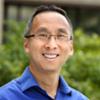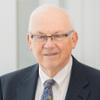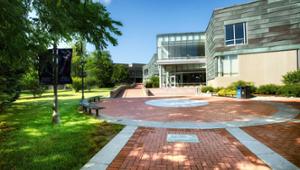
Education Studies
The goal of the Education Studies Program is to provide knowledge of the history of theory in the study of education as well as a methodological orientation to inquiries in education.
About the Minor
With the support of faculty mentors, Hamilton students tailor their own education coursework. Local schools become their classroom as students observe teachers, tutor and coach, study with administrators and policymakers, plan enrichment programs, work in resource rooms, and more. Education consistently ranks as one of the top fields in which Hamilton graduates begin their careers. Many teach in private schools or work in volunteer teaching corps; others advance to graduate study.
A Sampling of Courses

Urban Education
Shaped by social, political, and economic forces, urban schools reflect diverse societal issues and inequalities. In this course, students will first examine the historical foundation in which issues and inequalities in urban schools are rooted by exploring such topics as urban development and distribution of economic opportunity, migration, immigration, segregation, housing and rezoning. Next, students will explore how inequalities impact urban schools and then how experiences in urban schools reproduce inequalities of access and opportunity to education.
Explore these select courses:
Meet Our Faculty
Stephen Wu
Irma M. and Robert D. Morris Professor of Economics, Acting Director of Education Studies
health and health care, higher education, economics of happiness
Chaise LaDousa
Christian A. Johnson Excellence in Teaching Professor of Anthropology; Director of Education Studies
language and culture, particularly the ways in which institutions serve as loci for cultural production
service-learning and volunteerism; international development and education; comparative education; critical pedagogy in global context; race and education in the American South; race theory
Careers After Hamilton
Hamilton graduates who minored in education studies are pursuing careers in a variety of fields, including:
- Teacher, Temple Israel Hebrew School
- School Social Worker, Bloomfield School District
- Attorney
- President/CEO, Planned Parenthood
- Learning Disabilities Teacher, Lincoln-Sudbury High School
Explore Hamilton Stories

Taking a Path to Higher Ed Leadership
Ty Kunzman ’20 plans to celebrate his Hamilton graduation by heading right back to school. In June he’ll begin work on his Master of Education in Student Affairs Practice in Higher Education at the University of Virginia’s Curry School of Education and Development.

Gordon ’22 to Teach at Shady Hill School, Pursue M.S. Education
Jeremy Gordon ’22 will participate in a one-year teacher preparation program, while simultaneously obtaining an accelerated master’s in education from Lesley University.

Do Slugs Think? Philosophy for Children Asks That and More
Twelve Hamilton students joined Nichols in developing and delivering weekly lessons exploring age-appropriate topics in philosophy with groups of Clinton elementary and middle school students.
Contact
Department Name
Education Studies Program
Contact Name
Steve Wu, Acting Director
Clinton, NY 13323












